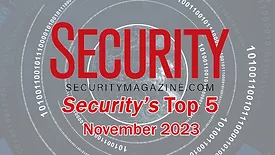Home » ransomware
Articles Tagged with ''ransomware''
Sign-up to receive top management & result-driven techniques in the industry.
Join over 20,000+ industry leaders who receive our premium content.
SIGN UP TODAY!Copyright ©2026. All Rights Reserved BNP Media.
Design, CMS, Hosting & Web Development :: ePublishing
.webp?height=168&t=1706715020&width=275)





.webp?height=168&t=1705414638&width=275)
.webp?height=168&t=1705334871&width=275)


